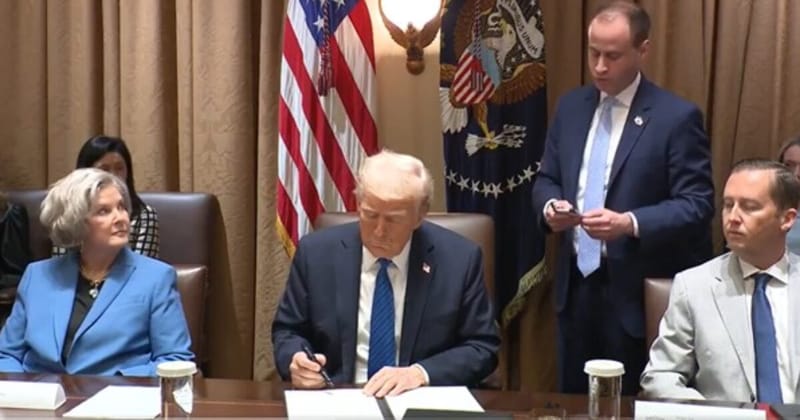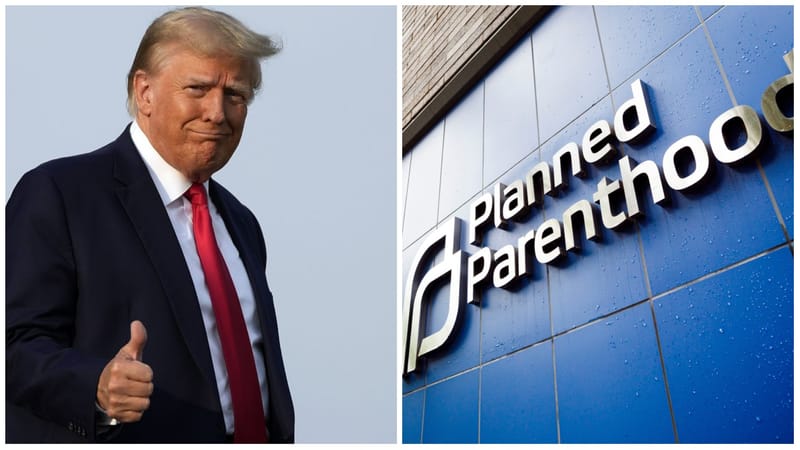Trump Inaugurated, Wastes No Time with Sweeping Executive Orders
Pardons, Immigration, and Energy Policies Mark New Era on Day One Washington, D.C. - January 21, 2025 In an unprecedented display of executive action, Donald Trump, sworn in as the 47th President of the United States on Monday, signed a flurry of executive orders on his first full day
Pardons, Immigration, and Energy Policies Mark New Era on Day One
Washington, D.C. - January 21, 2025
In an unprecedented display of executive action, Donald Trump, sworn in as the 47th President of the United States on Monday, signed a flurry of executive orders on his first full day in office. The moves signal a sharp pivot from the policies of the previous administration, touching on everything from immigration to energy policy.
Trump's inauguration on January 20 was followed by a series of announcements at a packed Capital One Arena, where he signed orders that included pardons for those involved in the January 6, 2021, Capitol incident. Among those pardoned were key figures from extremist groups, a decision that has already sparked widespread debate and legal scrutiny.
On the immigration front, Trump issued an order to end birthright citizenship, a policy that many legal experts argue would be unconstitutional. He also declared a national emergency at the U.S.-Mexico border to expedite the construction of a border wall and reinstate the controversial "Remain in Mexico" policy. These actions are expected to face immediate legal challenges, with critics arguing they undermine human rights.
President Trump just nuked gender ideology.
— Billboard Chris 🇨🇦🇺🇸 (@BillboardChris) January 21, 2025
Here is the full Executive Order.
Very important! The President rightly uses the word ‘sex.’ Not ‘gender.’
There are two sexes, zero genders, and infinite personalities. 🧵 pic.twitter.com/QQkFGLgoyv
In a significant shift for environmental policy, Trump announced the U.S.'s withdrawal from the Paris Climate Agreement, reversing the rejoining by the Biden administration. He also issued an order to declare a national energy emergency, aimed at accelerating fossil fuel projects, particularly in oil and gas, which could have long-term implications for the so-called "climate change" efforts.
The new president didn't stop at policy; he also tackled what he described as "inefficiencies" in government. Trump signed an order for a federal hiring freeze, excluding military roles, and another to review and potentially dismantle diversity, equity, and inclusion initiatives across federal agencies. The creation of the Department of Government Efficiency, with Elon Musk at the helm, was highlighted as a move to make government operations leaner and more effective.
On cultural issues, Trump's orders included moves to reverse transgender protections, affecting gender identity recognition on official documents and health care funding for gender transitions. These actions have already stirred significant controversy and are anticipated to lead to protests and legal battles.
President Trump is delivering results from Day One—and he’s just getting started!
— The White House (@WhiteHouse) January 21, 2025
🇺🇸 42 Executive Orders, Memoranda, & Proclamations
🇺🇸 115 Personnel Actions
🇺🇸 Over 200 Executive Actions
🇺🇸 60 Minutes of Press Q&A
Promises Made, PROMISES KEPT. pic.twitter.com/jpRF390zgA
Economically, Trump's immediate actions included directives to address inflation through cost reduction reviews within federal agencies and a temporary reprieve for TikTok from a potential ban, signaling a nuanced approach to tech policy.
The public reaction has been as polarized as ever, with Trump's supporters lauding the aggressive start, while critics condemn the potential overreach and the ethical implications of some decisions. Legal experts are already gearing up for battles in the courts, which will likely define how much of Trump's ambitious first-day agenda will survive.
As the dust settles on this whirlwind of executive action, the nation watches closely, knowing that the coming days and months will reveal much about the balance of power between the executive branch, the judiciary, and Congress under Trump's second term.




